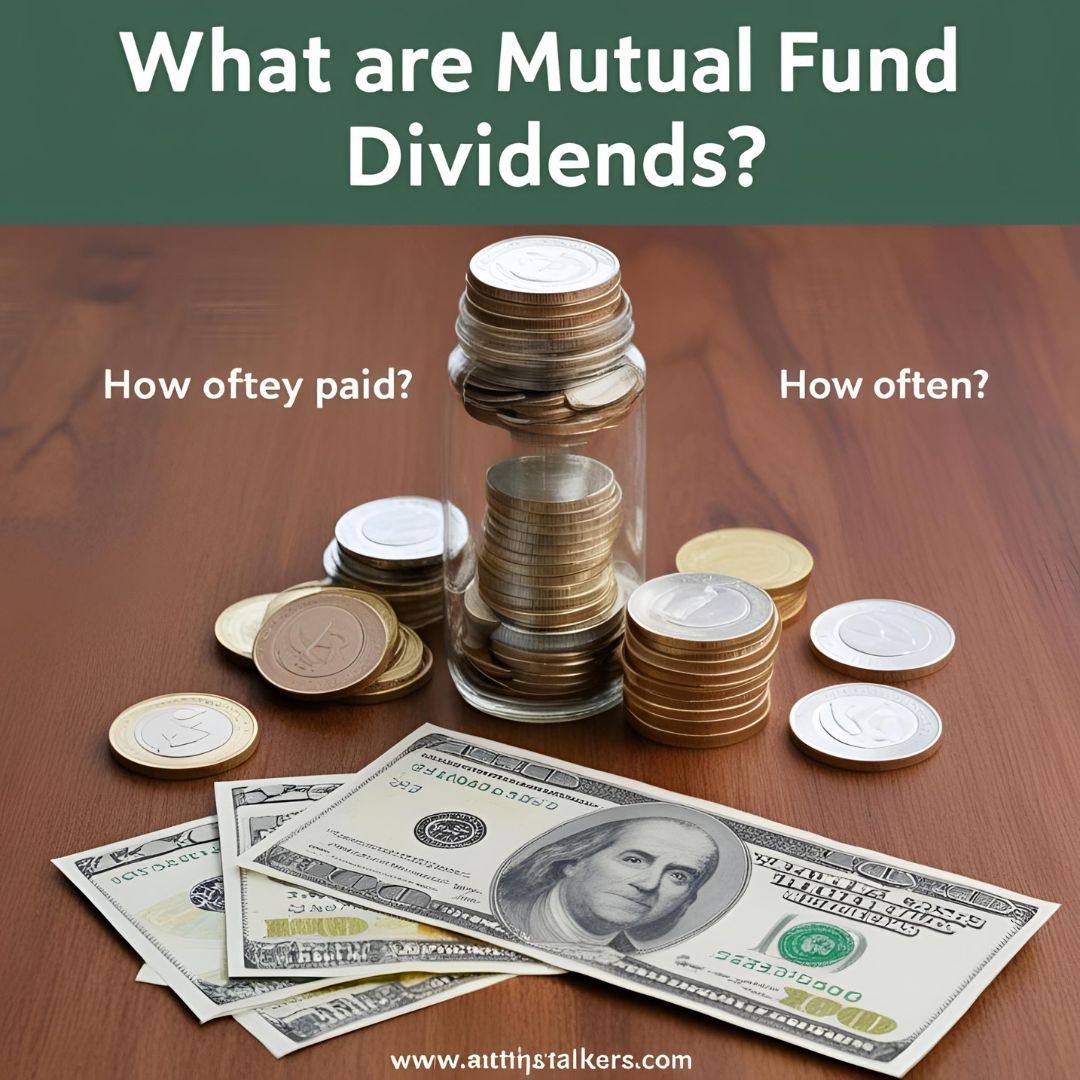Mutual funds are popular investment vehicles that pool money from multiple investors to invest in stocks, bonds, or other securities. One of the key benefits of owning mutual funds is the potential to earn dividends. These payments can be a valuable source of income, but understanding how they work, how often they’re paid, and the associated tax consequences is crucial for smart investing.

What Are Mutual Fund Dividends?
- Dividends are income distributions paid out of the earnings generated by the mutual fund’s underlying assets.
- These earnings typically come from:
- Interest earned on bonds or other fixed-income investments.
- Dividends paid by stocks held within the mutual fund.
- Capital gains from selling securities at a profit.
- Mutual funds are required by law to distribute virtually all income and capital gains to shareholders annually.
- There are two main types of mutual fund dividends:
- Dividend income – from stocks and interest.
- Capital gains distributions – from selling fund holdings at a profit.
How Are Mutual Fund Dividends Paid?
- Investors receive dividends based on the number of shares they own.
- Payments can be made in two ways:
- Cash payout – dividends are sent to the investor’s bank account or reinvested in a money market fund.
- Reinvestment – the dividends are used to purchase additional shares of the same mutual fund automatically.
- Reinvestment is typically the default option unless the investor specifies otherwise.
- Payment methods are chosen during the account setup process but can be changed later.
How Often Are Dividends Paid?
- The frequency of dividend payments varies depending on the mutual fund:
- Monthly – Common with bond funds or money market funds.
- Quarterly – Common for stock mutual funds.
- Annually or semi-annually – For funds that hold assets that generate irregular income or capital gains.
- The fund’s prospectus or website will state the distribution schedule.
- Most funds also issue a year-end capital gains distribution, especially if they’ve sold profitable holdings.
Are Mutual Fund Dividends Taxable?
- Yes, mutual fund dividends are taxable, even if they are reinvested.
- Tax treatment depends on the type of distribution:
- Qualified dividends are taxed at long-term capital gains rates: 0%, 15%, or 20%.
- Ordinary (non-qualified) dividends are taxed at the investor’s ordinary income tax rate.
- Capital gains distributions are taxed either at short-term or long-term capital gains rates.
- Dividends are reported on Form 1099-DIV, which is sent to investors each year.
- Holding funds in a tax-advantaged account can defer or eliminate taxes on dividends until withdrawal.
Can Mutual Fund Dividends Be Reinvested?
- Yes, most mutual funds offer automatic dividend reinvestment plans (DRIPs).
- Benefits of reinvestment include:
- Compounding growth over time.
- Dollar-cost averaging, as reinvested dividends purchase shares at different prices.
- No transaction fees (in most cases) when reinvesting.
- Keep in mind:
- Even though dividends are reinvested, they are still taxable in the year they are received (unless held in a tax-deferred account).
Key Takeaways
- Mutual fund dividends provide regular income from interest, dividends, and capital gains.
- They are typically paid monthly, quarterly, or annually, depending on the fund type.
- Investors can choose cash payouts or reinvestment options.
- Dividends are taxable in the year they’re received, regardless of how they’re paid.
- Automatic reinvestment helps in long-term portfolio growth, especially in tax-advantaged accounts.
Final Thought
Mutual fund dividends can be an excellent way to generate income and grow your investments over time. Whether you choose to reinvest them or take them as cash, understanding the mechanics and tax implications ensures you make informed decisions aligned with your financial goals.
